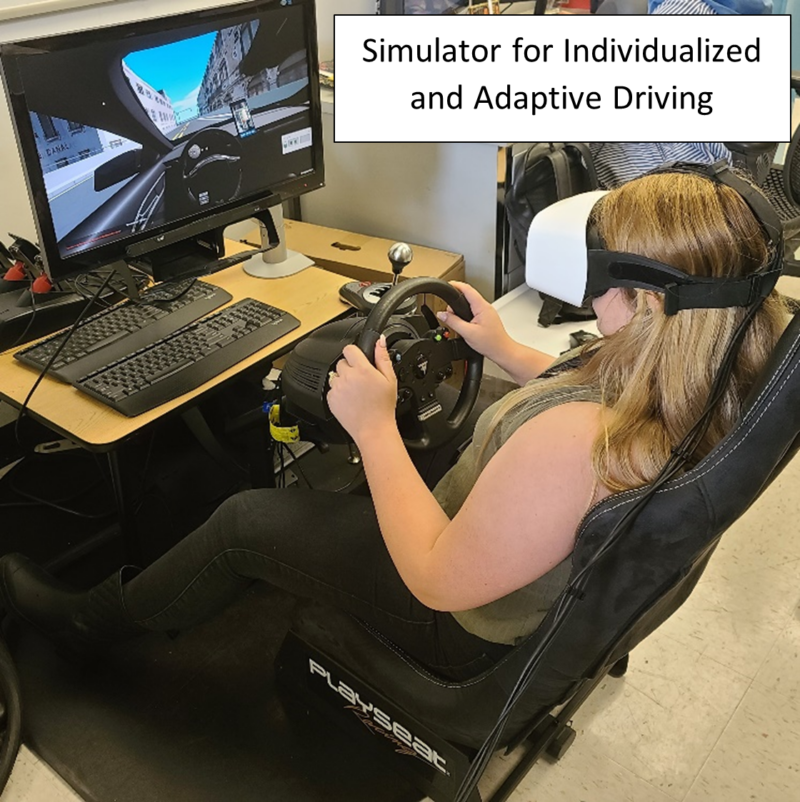Fewer than 30% of autistic adults are licensed to drive a personal vehicle. This severely limits their employment opportunities if they cannot reliably get to work.
Researchers from Vanderbilt University’s Frist Center for Autism & Innovation have created a Simulator for Individualized and Adaptive Driving (SIAD), which is powered by artificial intelligence (AI) and provides driver training in a safe and secure virtual reality (VR) environment. This intelligent simulator monitors gaze patterns, driving patterns and errors, and provides customized feedback to facilitate driving skill learning, designed to meet the needs of autistic learners
The science and technology behind the simulator have been published in well-known scientific journals.
Learners participate in a structured driving curriculum over the course of approximately 10 sessions of 45 minutes each. The curriculum has three phases, from a single-session introduction to the system (Phase 1), to focused instruction and practice over multiple sessions (Phase 2), to a final single-session assessment with recommendations for next steps the learner will need to achieve a driver’s license (Phase 3). In the course, learners develop the following core skills, within increasingly challenging scenarios such as inclement weather, emergency vehicles passing, pedestrians crossing, and more:
- Basic Controls – Become aware of and learn to properly use basic vehicle controls.
- Acceleration – Apply acceleration and maintain speed at various velocities.
- Braking – Apply the brakes and stop at different velocities.
- Turning – Control the wheel while making sharp, smooth, and continuous turns.
- Attention – Direct eyegaze at appropriate surroundings, roadway signs, pedestrians, other vehicles, etc.

